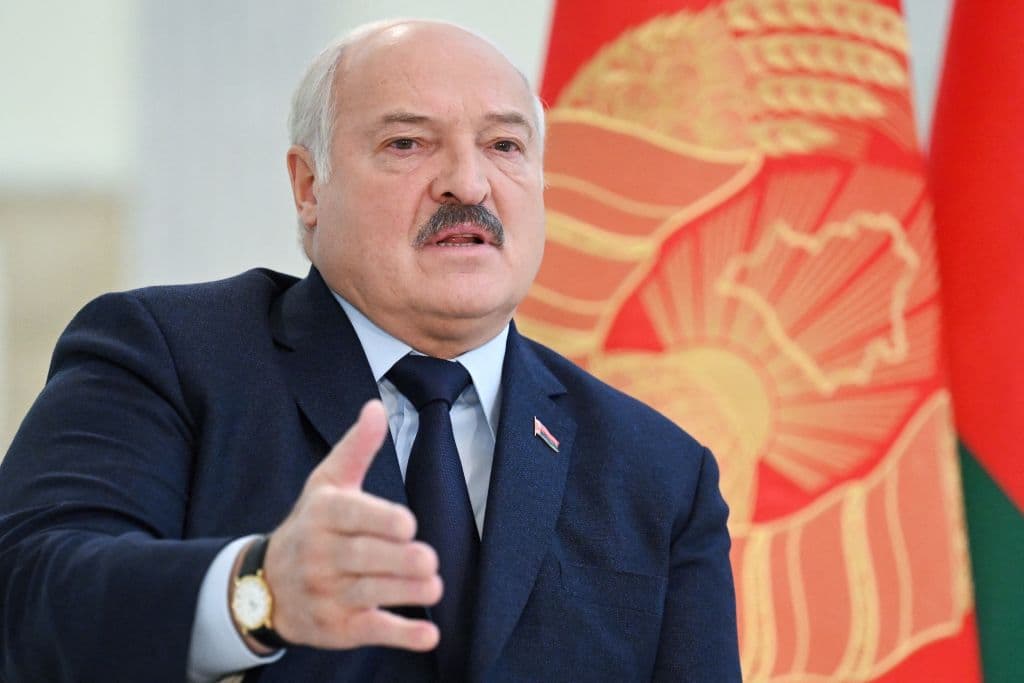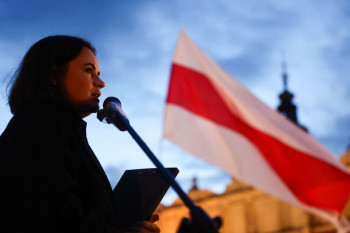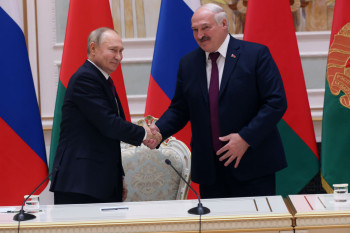Lukashenko visits Iran to discuss bilateral relations

Belarusian dictator Alexander Lukashenko arrived in Tehran, Iran, on March 12 to meet with Iranian leaders, according to Lukashenko’s official press service.
After having landed at Mehrabad International Airport, Lukashenko and Iranian President Ebrahim Raisi will reportedly discuss the countries’ bilateral relations, with an “emphasis on trade and economic cooperation,” including industry, agriculture, transport, and logistics.
“Special attention will be paid to the situation in the region and the world in general,” the press release said, adding that several agreements on “areas of mutual interest” will be signed.
No further information was provided regarding the nature of their discussions.
Lukashenko will also meet with Iran’s First Vice-President Mohammad Mokhber, parliament speaker Mohammad-Baqer Qalibaf, and Ayatollah Ali Khamenei, Iran’s supreme leader.
read also

The governments of both Belarus and Iran have provided assistance to Russia amid its full-scale invasion of Ukraine.
Belarus is a co-belligerent in Russia’s war, having served as a launching pad for Russian attacks on Ukraine. It has also provided training, medical assistance, and intelligence support to Russian forces.
While Belarus’ army is not directly involved in Russia’s full-scale invasion, the countries’ militaries have held joint drills, and Lukashenko has emphasized his support for Moscow on numerous occasions.
Lukashenko has repeatedly claimed that he does not intend to send Belarusian troops to Ukraine. However, he said on Feb. 16 that he would do so if “at least one (Ukrainian) soldier sets foot in Belarus,” a statement that some experts suggest may be an attempt at predicating further involvement by Minsk in Russia’s war through false flag operations.
In late February, Lukashenko’s state visit to Beijing came amid concerns over China’s potential provision of lethal aid to Russia.
Meanwhile, Iran has been subject to international sanctions for its production and provision of drones to Russia. Russia has been using Iranian-made kamikaze drones to attack Ukraine since September, launching attacks against civilians and destroying energy facilities across the country.










